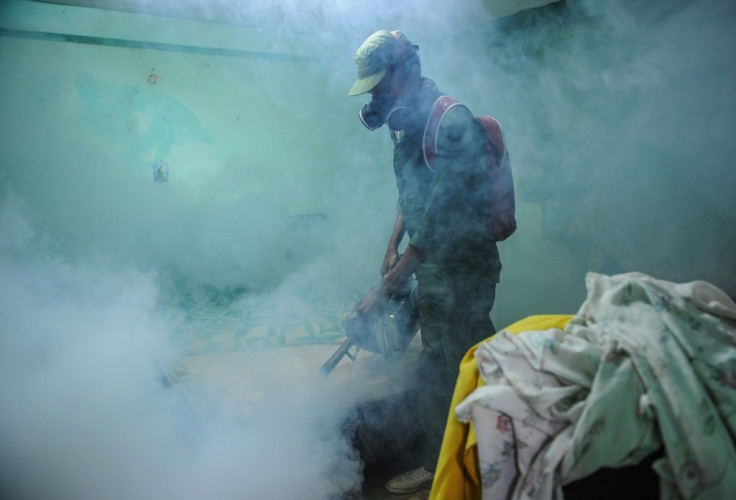Cuba Pesticides May Have Caused Canada Diplomats' Injuries: Study

Neurotoxins in pesticides used to fumigate against mosquitoes may be behind mysterious health complaints of Canadian diplomats in Cuba that had been blamed on suspected sonic attacks, according to a new study Thursday.
Dozens of Canadian and US officials and their families first reported in 2016 suffering from what became known as "Havana syndrome," with symptoms including dizziness, fatigue and headaches, as well as hearing and vision complications.
Canadian and US authorities initially suspected an attack using some sort of acoustic weapon, which led to heightened diplomatic tensions between Washington and the Caribbean island nation.
But Ottawa later concluded that to be "unlikely."
Researchers at the Brain Repair Centre in Halifax, in association with the Nova Scotia Health Authority and Dalhousie University, pinpointed possible "exposure to neurotoxins" by looking at how areas of the brain responsible for memory, concentration and sleep cycles can be damaged, and identifying possible culprits.
"This had nothing to do with acoustic attacks," said a summary of the study by Radio-Canada's news magazine Enquête, which obtained and made the study available online. "Nerve agents used in fumigation to eradicate mosquitoes are more likely the cause."
Twenty-six people participated in the study, including a control group of people who have never lived in Cuba, and were subjected to blood tests and brain scans.
The 15 Canadian victims reported "a gradual development of debilitating symptoms," the study noted, unlike their American counterparts who described hearing loud grinding or ringing noises, or feeling vibrations in their bodies.
American doctors and officials have pointed to "a new type of a possible acquired brain injury" outlined in the February 2018 issue of Journal of the American Medical Association by health experts at the University of Pennsylvania, who treated 21 US diplomats.
The US government has never publicly explained the cause of the mysterious illnesses. It neither confirmed nor denied the possibility of attacks using some sort of acoustic weapon.
Cuba has denied all responsibility for the incidents.
The Canadian study concluded that the Canadian diplomats were likely exposed over a period of time to low doses of neural blockers in commercial pesticides.
Cuba routinely sprays pesticides to kill disease-carrying insects, including an aggressive campaign against mosquitoes started in 2016 to stop the spread of the Zika virus.
Diplomatic offices and residences were sprayed, according to embassy records cited by Radio-Canada.
"It's just the beginning of the research," lead researcher Alon Friedmond told the public broadcaster, explaining that his team has continued to assess the various toxins that might be at play.
John Babcock, a spokesman for Canada's foreign ministry, which commissioned the study, told AFP that "no definitive cause of the health incidents has been identified to date" but the government is continuing to explore "all avenues," including the Halifax research.
No new cases have been reported since December 2018.
© Copyright AFP 2024. All rights reserved.





















